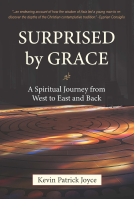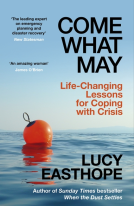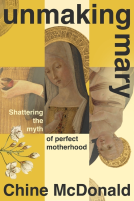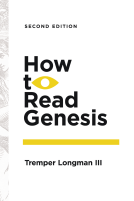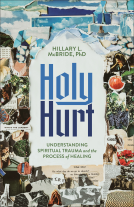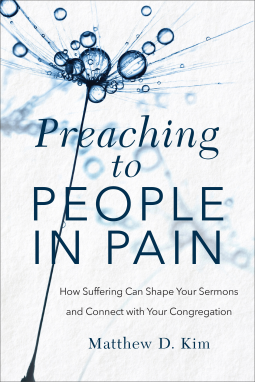
Preaching to People in Pain
How Suffering Can Shape Your Sermons and Connect with Your Congregation
by Matthew D. Kim
This title was previously available on NetGalley and is now archived.
Send NetGalley books directly to your Kindle or Kindle app
1
To read on a Kindle or Kindle app, please add kindle@netgalley.com as an approved email address to receive files in your Amazon account. Click here for step-by-step instructions.
2
Also find your Kindle email address within your Amazon account, and enter it here.
Pub Date 18 May 2021 | Archive Date 18 Jul 2021
Baker Academic & Brazos Press | Baker Academic
Talking about this book? Use #PreachingtoPeopleinPain #NetGalley. More hashtag tips!
Description
Outreach 2022 Recommended Resource (Church)
Southwestern Journal of Theology 2021 Book Award (Honorable Mention, Preaching/Ministry/Leadership)
Offering an important corrective to a pain-averse culture that celebrates individualism and success, veteran preacher and teacher Matthew Kim encourages pastors to preach on the painful issues their congregations face. Through vulnerability and self-disclosure, pastors can help their congregants share their suffering in community for the purpose of healing and transformation. The book includes stories, shares relevant Scripture texts imparting biblical wisdom, and offers best practices for preaching on specific topics. Each chapter ends with discussion questions and a sample sermon.
Advance Praise
“Our congregations need not only truthful exegesis and engaging preaching but also emotional discipleship. Each week, the people in our pews carry with them loss, grief, and suffering, and they long for a way to meet God in the midst of their struggles. When sermons focus only on the victory of the Christian life, this makes walking the way of Jesus more difficult for those who are in pain. Kim helps those of us who preach to address various types of suffering with wisdom, compassion, and the hope of Christ. He helps us take up the holy responsibility of proclaiming that every part of our lives—including our sorrow and pain—is something that we address as a church and is, more importantly, a place to encounter God.”—Tish Harrison Warren, Anglican priest; author of Liturgy of the Ordinary and Prayer in the Night
“Matthew Kim is a battle-scarred, veteran pastor familiar with suffering and a master teacher of preaching. His perceptive, poignant book will pluck up your courage and inspire you to preach powerful sermons that birth hope in the lives of people who suffer.”—Ken Shigematsu, pastor, Tenth Church, Vancouver, British Columbia; author of Survival Guide for the Soul
“Matthew D. Kim, an experienced pastor, preacher, and teacher of preaching, has written an insightful and beautifully instructive book on preaching to people who experience pain—on all sorts of levels. Kim deftly demonstrates the preacher’s responsibility to understand his or her own personal pain and the pain of his or her listeners. As a result, the preacher is enabled to empathize with them and out of her own pain preach the hope of the Scriptures to them. Preaching to People in Pain is an important contribution to pastoral ministry, to preaching, and to the field of homiletics. Kim is to be commended for addressing this tender and fragile but often overlooked aspect of the preaching task.”—Scott M. Gibson, professor of preaching, David E. Garland Chair of Preaching, and director of the PhD program in preaching, Truett Seminary, Baylor University
“Preaching to People in Pain could also be called Preaching to Humans. In a culture which makes us believe something is wrong with us when we experience suffering, preachers have a choice: to provide shallow promises or to trust in the truth of our story—that resurrection only comes after death. With wisdom and courage Matthew Kim invites preachers to name their own pain for the sake of their own health and the health of their congregations. We’re presented with the hopeful possibility that together we have the capacity for the challenges of life and that as we face them, we find the truth of our story in solidarity with our suffering (and resurrected) Lord.”—Mandy Smith, pastor and author of The Vulnerable Pastor and Unfettered: Imagining a Childlike Faith beyond the Baggage of Western Culture
“Frederick Buechner famously wrote that the preacher should not be like the captain of a ship ‘who is the only one aboard who . . . does not know that the waves are twenty feet high.’ Preaching to pain clearly indicates that we understand that there are waves. Confessing our own pain as part of that process indicates that we have had to navigate the waves too. Matthew Kim addresses the waves and rides them with his readers to teach us all how to navigate life’s storms by the light of our Savior’s heart.”—Bryan Chapell, pastor emeritus, Grace Presbyterian Church; president emeritus, Covenant Seminary; author of Christ-Centered Preaching
Available Editions
| EDITION | Other Format |
| ISBN | 9781540961297 |
| PRICE | US$27.00 (USD) |
| PAGES | 240 |
Featured Reviews
 Rachael N, Reviewer
Rachael N, Reviewer
This is a really useful book. It's clear, honest and encourages preachers and pastors alike to engage with their pain and bring it to God as they minister to others whilst highlighting the difficulties and stumbling blocks along the way.
 Conrade Y, Reviewer
Conrade Y, Reviewer
What type of sermons should pastors preach more of? Should it be more rah-rah "success-driven" high-fives or the more solemn sermons on pain and suffering? Arguing that success only happens to a minority while suffering is universal, author and professor Matthew Kim believes that sermons on suffering are more relevant for our world. Drawing from his pastoral and personal experience, this book shows us how we could walk with people in pain. Through the preaching of the Word, he models for us the way to "preach less pain-free sermons and to preach more pain-full sermons where preachers disclose their own suering and pain." Designed more as a corrective rather than a directive, Kim is concerned about the way many pulpits celebrate sermons about success which in turn could lead to more individualism and materialism. He begins with his personal story that shapes his preaching narratives today. In pastoral ministry, he laments how pastors themselves experience rarely some care from their congregation members. Most care is unilateral from pastors outward. The same thing applies to seminary contexts where students expect their professors to constantly be at a top spiritual and emotional level. For both situations, the fact is that pastors and professors are human too. They need care as well. He shares about the pains some pastors go through. One was battling cancer. Another was going through a painful marriage. Still, another was experiencing unimaginable tragedy. Sadly, the culture we live in chooses to avoid instead of engaging. Suffering is ubiquitous, success is not.
Kim shows us that Scripture contains plenty of examples of pain and suffering. Literature too. He then shows us the pitfalls of preaching on pain and reminds us of the need to discern both the Word and the people we serve. For one, some parishioners do not need another let-down after a week of stress and discouragement. Another risk is that parishioners might feel disheartened or disillusioned when even their highly regarded pastors could experience moments of weakness. Other dangers include the temptation to focus too much on self-pain or makes the sermons repetitive with the same story being told too frequently. He balances these with some benefits that come with self-disclosure of personal pain. This is augmented with a need to listen to the pain of the congregation. Kim provides some pastoral tips in terms of care and learning to preach in anticipation of future pain. Preach a love that is able to transcend earthly pain and suffering. The rest of the book helps preachers to strategize their sermons about pain. He shows us nine questions to ask when preparing such sermons. Questions about which passage; the unique pain described; how the Bible character dealt with it; how to relate to the listener; what the pain reveals about God; how God helps; and how we can show care and empathy. Part Two of the book covers six specific areas of pain: Decisions, Finances, Health, Losses, Relationships, and Sins.
Each chapter describes the nature of the pain and how we could craft out a plan on tackling that. At the end of each chapter are discussion questions to accompany the themes described. Kim also provides a sample sermon to show us how the ideas described could be applied. The Appendix is a worksheet for understanding pain to give preachers a kickstart on preparing a curriculum for preaching sermons on pain.
My Thoughts
===============
I have just three letters to describe this book: WOW. Talking about pain over the pulpit seems so counter-cultural, even to Christians. I have seen how many people flock to megachurches, attracted either by a charismatic pastor or uplifting sermons. The common themes preached over many such pulpits are sermons about success, prosperity, and a feel-good atmosphere. People tend to embrace success while avoiding pain. They prefer positive words rather than negativity. They want good news delivered on a platter of triumphalism. Believing that Jesus has won the spiritual battle for good, they claim victory at all levels in the Name of Jesus. Theologically that is nothing wrong with that. Jesus has won. Death has been defeated. The conclusion of Revelation shows us the victorious conclusion. However, time is not up to us to decide. We may not like pain but our liking does not necessarily prevent any future pain. Avoidance will not shield us. Only Jesus is our Refuge and Strength.
Kim has given us an important resource to deal with a common problem. I remember how popular Philip Yancey observes the popularity of his own books. Of all the bestselling books he has written, the one that has captured the most hearts is his book on pain and suffering: "Disappointment with God." Pain may not be something we like to preach, but it is necessary. What we need to do is to learn how to discern the right time and moment to deliver such an emotional message. Thankfully, Kim gives us very practical tips on ensuring we are truthful to ourselves, our congregations, and especially to the Word of God. Pain is not everybody's cup of tea, but it is happening everywhere in this world. We are currently in one of the worst pandemics in history. This makes books like this even more important as pastors deal with the losses experienced by members who had caught the coronavirus, as well as to help people deal with the fears of catching Covid-19. Learning to hope for the best needs to be balanced with a desire to prepare for the worst. For Kim, he has written this book out from his own experience. This is something that pastors and preachers ought to prepare themselves too. I am glad that Kim has given us a treasure of tips and strategies to deal with this immensely important and relevant topic. Don't wait until the suffering before getting this book. Get it now to help us prepare ourselves and our congregations for the worse. Remember that before the victory in Revelation, there is Tribulation?
Dr. Matthew Kim is the George F. Bennett Professor of Preaching and Practical Theology at Gordon-Conwell. Before joining the faculty in 2012, Dr. Kim brought over 10 years of preaching and teaching experience to his role at Gordon-Conwell. Most recently, he served as senior pastor of Logos Central Chapel in Denver, Colorado.
Rating: 4.75 stars of 5.
conrade
This book has been provided courtesy of Baker Academic and NetGalley without requiring a positive review. All opinions offered above are mine unless otherwise stated or implied.
 Educator 676205
Educator 676205
"Preaching on pain and suffering is very much an expression and outworking of lived theology....Are we preaching sermons that people want to hear or sermons that they need to hear?...How is a Christian any different from a non-Christian? It’s often in how we respond to pain and suffering."
I was not expecting to enjoy this book so much or to be so moved by it.
The author writes in response to the trend of North American preaching to concentrate on success and how the gospel can be lost in the prevailing psychological and social dominance of 'individualism, success, upward mobility, progress, and advancement.' If people in the pew would perhaps prefer sermons on success than suffering, this is the challenge of the preacher and the need of this book.
The author introduces the tricky area, how much of their own personal pain should come into the preacher's sermon. The pulpit should not be the therapist's couch for the preacher, but a suitable balance can be found.
He emphasises that if the preacher is unaware of the pain faced by their congregation, then how can they truly apply the gospel to their wounds and needs. If this is done carefully, the author suggests that the people may connect with people afresh. "“When one person is willing to step into vulnerability, it disrupts forever the cycle that traps us, giving us permission to share our fears, creating a space for others to be human and for God to be God.” He offers many practical suggestions as to how to do this.
Of course to preach on pain, then one has to have a solid theological foundation which takes into account free will, and God's sovereignty..
I was particularly struck by the reminder that long-past sin often resurfaces 'when we are on the brink of a spiritual breakthrough;' that in suffering we are imitators of Christ more than in almost anything else that we do; that pain engulfs our emotional and spiritual comprehension; the necessity of lament as lost Christian tradition, that Christians are called to contentment which in Christ does not presume a lack of suffering and in fact does the opposite; that at times of suffering we run from God instead of running towards him; and that good ministry is not done solely in the study but in visiting and pastoring, of which I too am guilty.
I've probably never heard a sermon on the story of Ruth, but the author's application of it has opened my eyes to it. The author comments on the wider decline of friendship and notes how this is related to our aversion towards sacrifice of any kind. His exegesis of the restoration of St Peter by Christ was fascinating.
He concentrates on the big themes of pain - financial, physical and mental, shame, bereavement, broken relationships, and with each one provides a central biblical story as an example to apply our preaching.
Two issues came up as I read this book. The author is prolific with quotations from other authors, and whilst I greatly added to my to-read list from the snippets mentioned, I felt that this broke the flow of the text and diminished the voice of the author and the power of his argument. The second point is merely contextual. The text is written for the North American context, and much of it is specific to it. The sample sermons at the end of each chapter are presumably part of the Reformed Evangelical tradition of the author and seemed rather alien to me. I found them a distraction rather than an example of application.
At one point, I had the stop and put the book down, so stunned as I was at the clear description of what it is to live with pain as the author does, and that pastors without no of pain can be impatient with others, and I felt the truth of this in my own life. Only four years ago, I began to suffer chronic pain and had never considered the spiritual consequences of this. In 20 years of preaching, I had never thought to preach on pain and that pain is indeed the common denominator of each and every person in my church.
I thoroughly commend this book.
